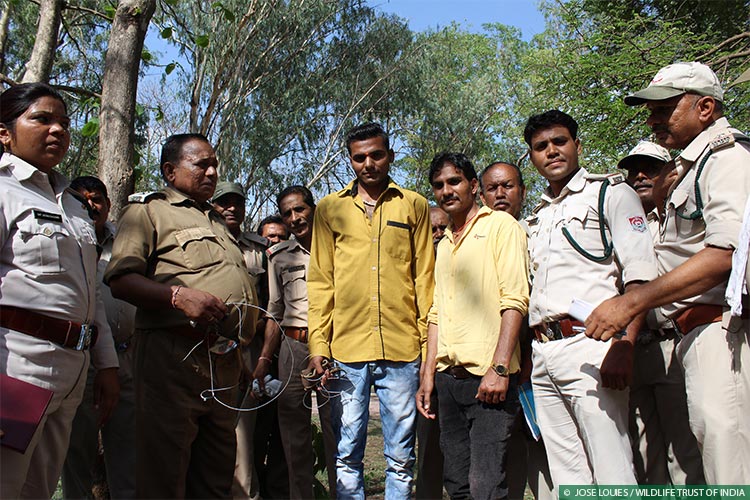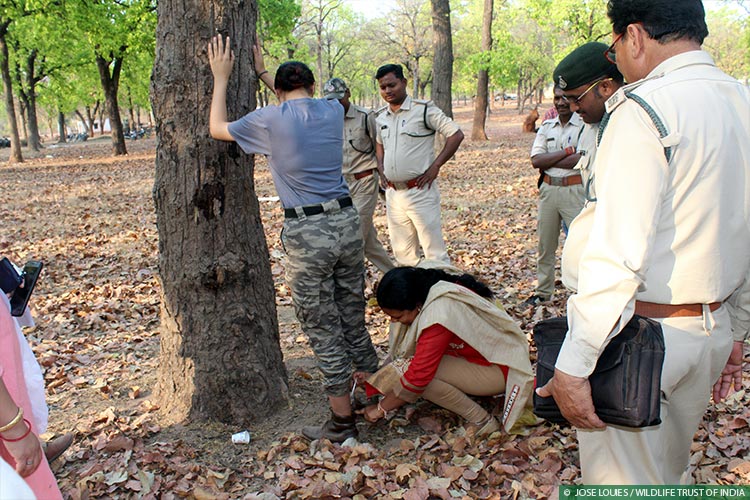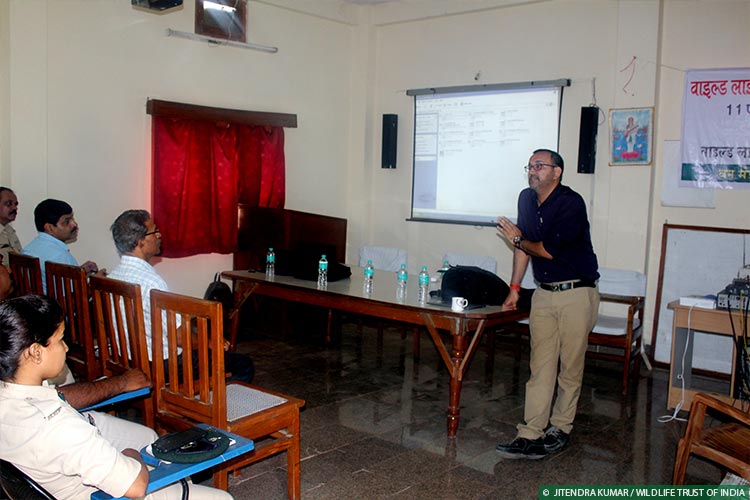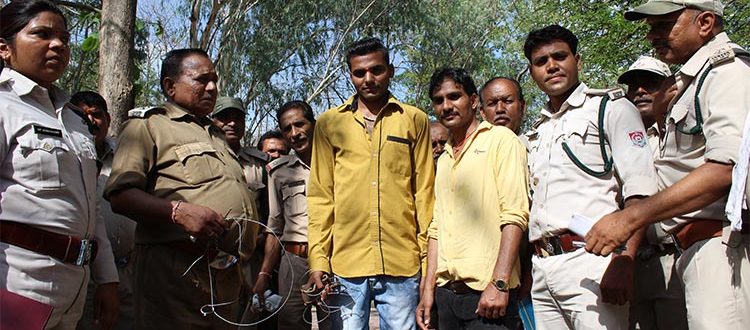Wildlife Crime Prevention Training conducted for Madhya Pradesh Forest Staff
Madhya Pradesh, April- June 2018: As part of the continuing efforts under its Van Rakshak Project to train, equip and boost the morale of frontline forest staff across the country, Wildlife Trust of India (WTI), in partnership with the Madhya Pradesh Forest Department and with support from Special Task Force (STF), Madhya Pradesh, conducted nine two-day training programme for the staff of Shahdol, Umaria, Jabalpur, Raisen and Dewas forest territorial divisions from April 2-15 and June 11 to 17, 2018. The next phase of training is planned for Betul in July, 2018.

Trainees demonstrating arrest procedures during a demo crime scene session.
The programme was attended by 280 frontline personnel. The curriculum included legal and enforcement aspects of the Wild Life (Protection) Act, 1972, as well as wildlife crime prevention components such as the basics of anti-poaching patrolling techniques, intelligence gathering, informer network and handling, search and seizure, interrogation, hunting communities, crime scene investigation and the preparation of Preliminary Offence Reports. Trainees were also briefed on relevant provisions of the Indian Evidence Act, Indian Penal Code and the Code of Criminal Proceedings, and the powers conferred on them therein for the prosecution of wildlife crimes.

Demo Crime Scene search Procedures
“If you look at the crime data from past several years, these areas are very sensitive in terms of illegal trade of wildlife products and needs higher attention towards equipping and supporting these territorial staff in the same way as given to the staff of any tiger reserve”- said Jose Louies, Chief of WTI’s Wildlife Crime Control Division. “Our motive is to first sensitize them about the hunting practices in their areas, how to keep track of sensitive locations, village watch and informer building, later the plan is to select staff and provide advanced training and build small teams at every division who is fully equipped to handle crime”.
“The purpose of the training was to ensure that territorial forest staff should also be equipped to handle crime and trade issues in their respective areas”- said Ritesh Sarotia, head, STF. He gave the emphasizes on training territorial staff in curbing wildlife trade as they lack the basic knowledge of enforcement and legal documentation and most of their areas are wildlife crime trade hotspots or transit locations.
Advocate Yash Kumar Soni, a consulting lawyer with WTI, emphasized the need to teach frontline personnel how to prepare legal documents in the proper manner. “Progress is seen in tiger reserves where we are providing continued legal assistance last three years in MP but territorial divisions have to go long way to achieve that target, therefore there is an urgent need to focus on these areas now. Our aim through these continued training is to address this shortcoming.”
WTI has been conducting such Wildlife Crime Prevention Training programmes under its Van Rakshak Project (VRP) since 2001. Over 16,732 frontline forest personnel have been trained in over 138 Protected Areas across 18 states. VRP follows a multi-pronged strategy with four thrust areas abbreviated as TEAM: Training, Equipping, Awareness and Morale Boosting, to build capacity and strengthen the spirit of personnel in tough field conditions.

Ritesh Sarotia explaining Govt. Notifications









